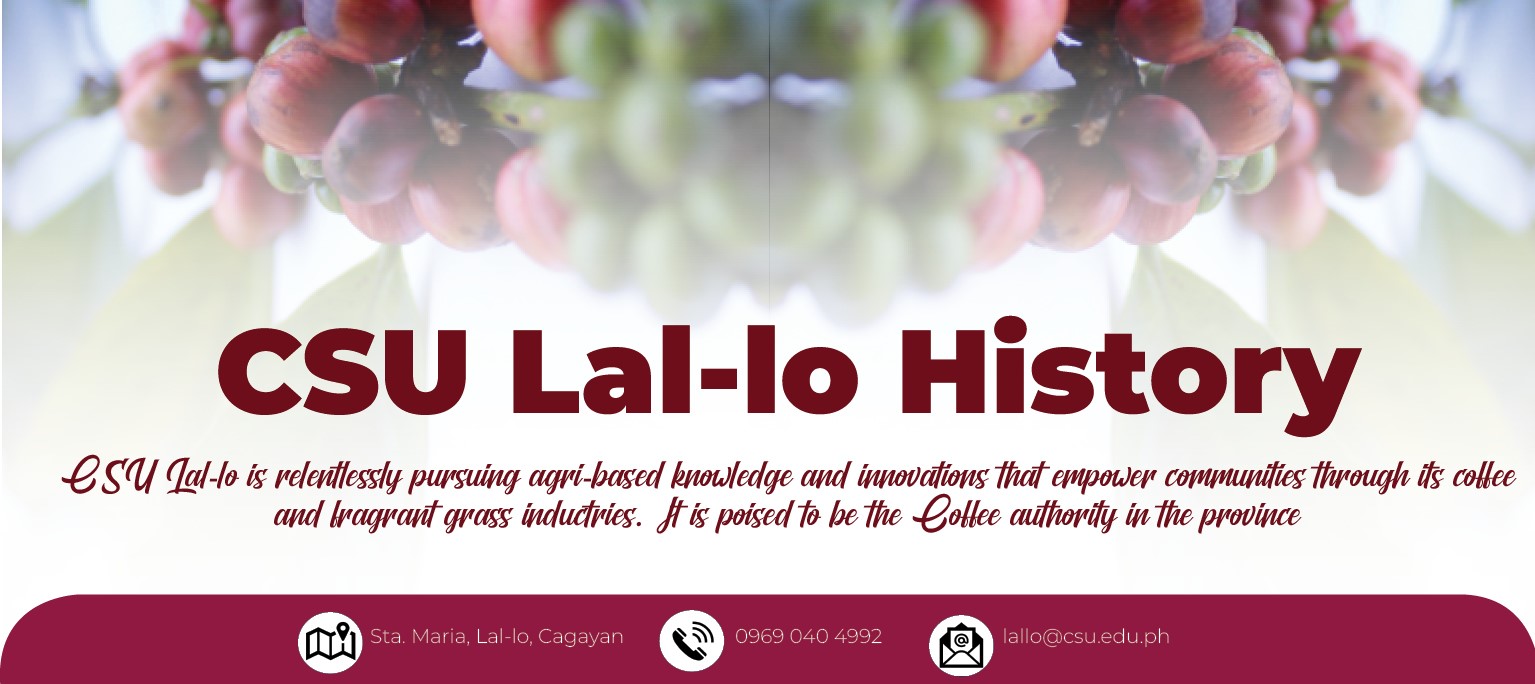
Cagayan State University Lal-lo Campus traces its origins to the establishment of the Cagayan Valley National Agricultural School in 1955 through Republic Act 1038 and Presidential Proclamation 239. Initially established to deliver a secondary agriculture curriculum for both male and female students, the institution evolved into the Cagayan Valley Agricultural College on June 16, 1962, under Republic Act 3474.
This transformation, spearheaded by former Congressman Tito M. Dupaya, expanded its offerings to include a two-year Technical Agriculture (Agricultural Technician) course, as well as Bachelor of Science programs in Agriculture (BSA) and Agricultural Education (BSAE). The first graduates emerged from its programs in 1967, with additional degrees in Home Technology and Agricultural Engineering introduced in 1976.
In 1978, the college department of Cagayan Valley Agricultural College merged into the Cagayan State University under Presidential Decree 1436, with Mr. Francisco S. Zamora appointed as its first Campus Administrator, formerly the Superintendent of CVAC. The integration continued in March 17, 1985, with the absorption of CVAC's secondary department, then led by Mr. Ernesto M. Esteban, into the CSU system.
In 1993, CSU Lal-lo became a beneficiary of the Philippine-Australia Agriculture Technology Education (Agritech) project, supported by the Australian government through AusAID. Significant developments followed, including the introduction of ladderized agriculture programs such as the Diploma in Agriculture Technology-Bachelor of Agricultural Technology (DAT-BAT) starting in SY1995-1996, which temporarily replaced the BSA program. The Bachelor of Science in Agriculture program was later reinstated, reflecting the institution's ongoing evolution.
Since then, CSU Lal-lo has expanded its academic portfolio to encompass new programs such as Bachelor in Elementary Education (1993), Bachelor in Secondary Education (1989), Bachelor of Science in Information Technology (2000), Bachelor of Arts in Political Science, and Bachelor of Science in Hospitality Industry Management, alongside its core agricultural and technological offerings.
The campus now is venturing on high-value commercial crops with coffee as its niche production program.